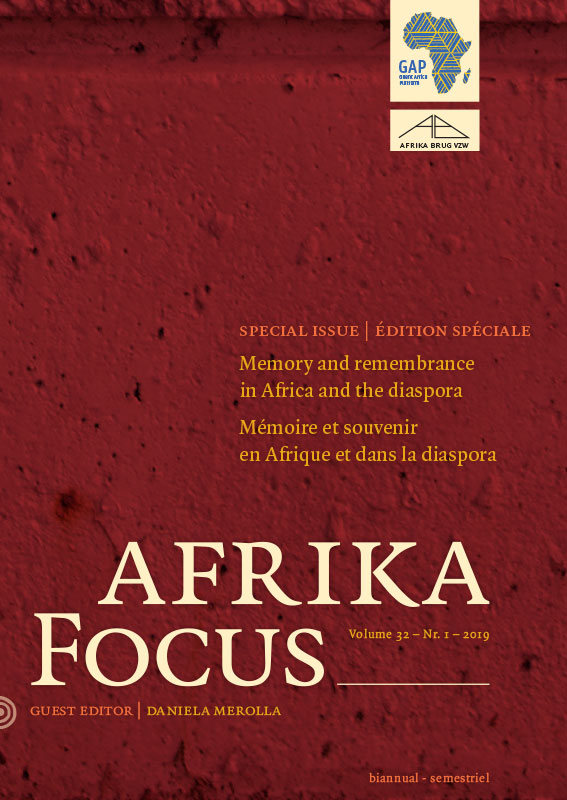Reorientation for National Transformation: the Role of Literature
DOI:
https://doi.org/10.21825/af.v32i1.11784Abstract
At the formative period of any human society, certain relevant orientations are conceived, designed and actualized to create awareness of what should be acceptable and/or unacceptable in human relationships. There are core values, norms and morals aimed at guiding the behaviour of the native population and making them aware of their place, time and identity within their society. The sole aim of such orientations is to ensure cohesion and a peaceful harmonious existence. Oral literature as it is referred to in this paper points to those literary artistic creations composed in oral form for the purposes of entertainment, edification and education. In the paper, we limit our discussions to the oral version of literature, drawing most of the excerpts from the works of oral Igbo literary artists. A few instances are also drawn from the written version as the need arises. KEYWORDS: RE-ORIENTATION, NATIONAL TRANSFORMATION, ROLE, ORAL IGBO LITERATUREDownloads
Published
How to Cite
Issue
Section
License
Authors who publish with this journal agree to the following terms
Authors retain copyright and grant the journal right of first publication with the work simultaneously licensed under a Creative Commons Attribution License that allows others to share the work with an acknowledgement of the work's authorship and initial publication in this journal.
Authors are able to enter into separate, additional contractual arrangements for the non-exclusive distribution of the journal's published version of the work (e.g., post it to an institutional repository or publish it in a book), with an acknowledgement of its initial publication in this journal.
Authors are permitted and encouraged to post their work online (e.g., in institutional repositories or on their website) prior to and during the submission process, as it can lead to productive exchanges, as well as earlier and greater citation of published work (See The Effect of Open Access).


